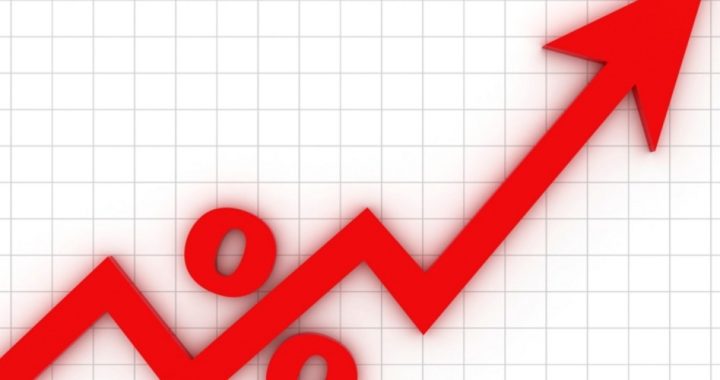
In a statement reflecting a worldview taught by all major universities and espoused by central bankers around the world, the president of the Federal Reserve Bank of New York, William Dudley, said on Friday that, on net, the destruction wrought by the hurricanes will be positive for the economy: “[The initial] effects tend to be pretty transitory. [But] the long-run effect of these disasters unfortunately is it actually lifts economic activity because you have to rebuild all the things that have been damaged by the storms.”
Dudley got the first part right: There will be a slowing of economic activity as people cease being productive in the economy and focus on rebuilding homes and other structures damaged or destroyed by Harvey and Irma. This is already being observed in the jump in unemployment-insurance claims which are likely to reach 400,000 a month through the end of the year. And these claims tend to reflect job losses into the early part of next year.
But as the economic activity in Texas, Louisiana, Florida, and elsewhere begins to be restored, unemployment claims will decline and employment will pick up.
In the short run, Dudley is exactly right. In fact, Dudley admits as much: “I would expect that by the time we get to the end of the year and early 2018, the transitory negative effects of the storms I think will be over.” But then he reiterates the falsity: “[After that] we actually will start to see some of the benefits of the rebuilding efforts in terms of boosting the economy.”
To be fair, Dudley’s statement is simply a reflection of the view held by members of the Federal Reserve and the Group of Thirty (G30) to which he belongs. Founded in 1978 at the behest of the Rockefeller Foundation which funded its creation, the G30 includes the heads of major private and central banks as well as top people from academia and various international institutions. Central bankers from across the globe, including two presidents of the European Central Bank (ECB), two chairmen of the Bank for International Settlements (BIS), two chief economists of the International Monetary Fund (IMF), and a chief economist of the World Bank also belong to this exclusive club.
What is wrong with Dudley’s conclusion is that he fails to ask the simplest of questions: “What is unseen?” What is he leaving out? What is, as Paul Harvey used to ask, “the rest of the story”?
It’s the same question that French economist Frédéric Bastiat explored in his 1850 essay “That Which Is Seen and That Which Is Not Seen.” He uses the example of the window broken by the son of a business owner:
Have you ever witnessed the anger of the good shopkeeper, James Goodfellow, when his careless son has happened to break a pane of glass? If you have been present at such a scene, you will most assuredly bear witness to the fact that every one of the spectators, were there even thirty of them, by common consent apparently, offered the unfortunate owner this invariable consolation — “It is an ill wind that blows nobody good. Everybody must live, and what would become of the glaziers if panes of glass were never broken?”….
Suppose it cost six francs to repair the damage, and you say that the accident brings six francs to the glazier’s trade — that it encourages that trade to the amount of six francs — I grant it; I have not a word to say against it; you reason justly. The glazier comes, performs his task, receives his six francs, rubs his hands, and, in his heart, blesses the careless child. All this is that which is seen.
But the conversation must not end there, says Bastiat:
If, on the other hand, you come to the conclusion, as is too often the case, that it is a good thing to break windows, that it causes money to circulate, and that the encouragement of industry in general will be the result of it, you will oblige me to call out, “Stop there! Your theory is confined to that which is seen; it takes no account of that which is not seen.”
It is not seen that as our shopkeeper has spent six francs upon one thing, he cannot spend them upon another. It is not seen that if he had not had a window to replace, he would, perhaps, have replaced his old shoes, or added another book to his library. In short, he would have employed his six francs in some way, which this accident has prevented.
Dudley would no doubt respond, “But there will be a pick up in economic activity! How can that not help the economy?” Bastiat has the ready answer:
Whence we arrive at this unexpected conclusion: “Society loses the value of things which are uselessly destroyed;” and we must assent to a maxim which will make the hair of protectionists stand on end — To break, to spoil, to waste, is not to encourage national labour; or, more briefly, “destruction is not profit.”
What will you say, Moniteur Industriel — what will you say, disciples of good M. F. Chamans, who has calculated with so much precision how much trade would gain by the burning of Paris, from the number of houses it would be necessary to rebuild?
In other words, why not deliberately destroy cities so the rebuilding of those cities will cause economic growth?
What’s lost is lost forever and cannot be made up. Certainly, eventually the economy will regain its footing and perhaps even move on to higher ground. But that “capital stock” of homes and businesses, buildings and stores, restaurants and garages has suffered a shrinkage that will never be made up. The economy starts from a lower level and can never make up for the loss.
There are other aspects that Mr. Dudley has ignored: inflation, and who will actually pay for the restoration. There will be price inflation as the demand for lumber and other building materials greatly exceeds supply, at least temporarily. Which means that new homes and garages, buildings and stores will be built at much higher cost than if they had been rebuilt prior to the destruction due to the hurricanes.
And who is going to pay for all of this? The federal government will attempt, reluctantly, by a conflicted Congress already facing enormous financial challenges, to inflict some of the cost on the backs of other taxpayers not affected by Harvey or Irma. But the bulk will likely be paid for by private insurance carriers who have been storing up funds over the years for just such a moment.
But Isn’t that a “net positive?” After all, have not thosre funds been idling away in insurance companies’ vaults to years? No, they have not been idling away in insurance companies’ vaults, but have instead been employed through the ownership of stocks, the offering of bonds, and the investment in business ventures around the country and the world. But this misses the point: Those reserves were built up over the years by the payment of premiums that shifted funds from possibly immediate productive uses in the economy into guarantees against future losses. Someone always pays for such destruction.
To suggest, as Dudley implies, that there’s a free lunch out there somewhere, someday, is not only to create a false impression, but also serves to expose his ignorance of the most basic and fundamental of economic laws.
An Ivy League graduate and former investment advisor, Bob is a regular contributor to The New American magazine and blogs frequently at LightFromTheRight.com, primarily on economics and politics. He can be reached at [email protected].
Related article:
Jump in Jobless Claims Following Harvey Is Just the Beginning



